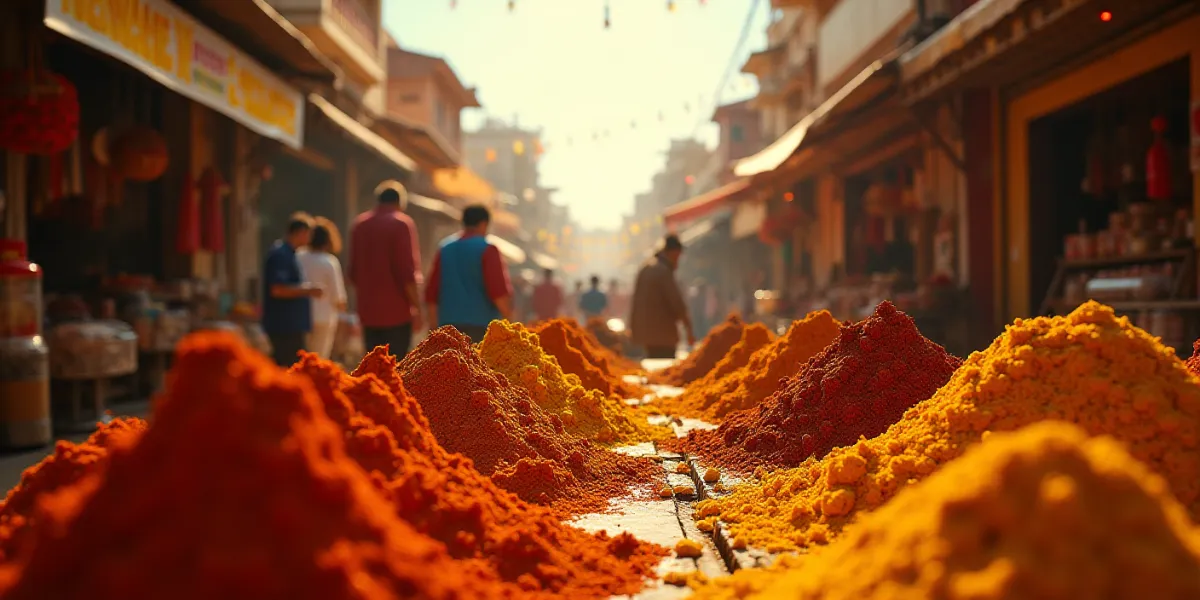The Allure and the Risks of Adventure Travel

The world beckons! Imagine yourself exploring vibrant markets overflowing with exotic spices, trekking through lush rainforests teeming with life, or relaxing on pristine beaches under a dazzling sun. Developing countries offer unparalleled opportunities for adventure and cultural immersion, experiences that enrich the soul and broaden the mind. But this incredible journey comes with a caveat: the risk of illness. Falling ill while traveling, especially in a developing country, can quickly transform a dream vacation into a nightmare, disrupting your plans, draining your resources, and potentially jeopardizing your health.

“Exploring Adventure Travel: Cultural Riches vs. Health Hazards”
Understanding the Challenges: Food, Water, and Hygiene
The challenges to staying healthy while traveling in developing countries often revolve around three key areas: food, water, and hygiene. Foodborne illnesses, caused by contaminated food or improper food handling, are a common concern. Similarly, consuming contaminated water can lead to serious gastrointestinal issues. Poor hygiene practices, both personal and in public spaces, can also contribute to the spread of disease. These factors are often amplified in developing countries due to variations in sanitation standards, food preparation methods, and access to clean water.
| Challenge | Potential Risks | Prevention Strategies |
|---|---|---|
| Food | Food poisoning, typhoid, hepatitis A | Choose carefully prepared food, avoid raw or undercooked foods, wash fruits and vegetables thoroughly |
| Water | Cholera, typhoid, diarrhea | Drink bottled water, use water purification tablets, avoid ice in drinks |
| Hygiene | Various infections, skin diseases | Wash your hands frequently, use hand sanitizer, avoid touching your face |
Why Prevention is Paramount: More Than Just Discomfort
Getting sick while traveling isn’t just about a few days of discomfort; it can have far-reaching consequences. Imagine missing out on planned activities, facing unexpected medical expenses, or even requiring emergency evacuation. The impact on your trip can be devastating, both financially and emotionally. Moreover, some illnesses contracted while traveling can have long-term health implications, requiring extensive treatment and follow-up care even after you return home. Therefore, proactive prevention is not merely advisable; it’s essential.

This Guide: Your Travel Companion for a Healthy Journey
This comprehensive guide is designed to equip you with the knowledge and practical Tips you need to minimize your risk of illness while exploring developing countries. We’ll delve into detailed strategies for navigating food safety, accessing safe drinking water, practicing effective hygiene, and understanding essential Safety precautions. We’ll also explore Transportation options and considerations, and offer advice on choosing appropriate Activities that align with your health priorities. By the end of this guide, you’ll feel confident and prepared to embark on your adventure with peace of mind, knowing you’ve taken the necessary steps to protect your well-being.
What You’ll Learn: A Roadmap to Healthy Travel
In the following sections, we will cover:
- Essential pre-trip preparations, including vaccinations and necessary medications.
- Strategies for selecting safe and hygienic food and water sources.
- Practical hygiene practices to minimize your risk of infection.
- Important safety considerations and emergency preparedness.
- Resources and further information to enhance your Travel experience.
Let’s embark on this journey together, ensuring your adventure is filled with unforgettable experiences, not unexpected illnesses. Get ready to explore the world safely and responsibly! If you have any questions, please feel free to Contact us.
“`
Pre-Trip Preparations: Laying the Groundwork for a Healthy Journey
Vaccinations and Consultations: Protecting Yourself Before You Go
- Consult your doctor at least 8 weeks prior to departure.
- Discuss necessary vaccinations and recommended medications.
- Inquire about malaria prophylaxis if traveling to a malaria-prone region.
| Vaccination | Recommended? | Notes |
|---|---|---|
| Hepatitis A | Yes | Highly recommended for all travelers. |
| Hepatitis B | Yes | Considered for long-term travelers or those with high-risk exposure. |
| Typhoid | Yes | Especially important in areas with poor sanitation. |
Thorough pre-trip preparation is crucial. Don’t underestimate the importance of a consultation with your doctor. They can provide personalized advice based on your itinerary and health history. Remember, prevention is always better than cure!
Packing Essentials: Your Travel Health Kit
- Pack a comprehensive first-aid kit.
- Include anti-diarrheal medication, pain relievers, and antiseptic wipes.
- Bring any prescription medications with a doctor’s note.
| Item | Quantity | Notes |
|---|---|---|
| Anti-diarrheal medication | Sufficient for the trip duration | Follow dosage instructions carefully. |
| Pain relievers | At least 10-14 tablets | Choose a non-aspirin option if possible. |
| Antiseptic wipes | One package | Useful for cleaning minor wounds. |
A well-stocked travel health kit is your best friend. Having access to essential medications and supplies can make all the difference in managing minor ailments.
“I always pack extra medication, just in case. It’s better to be safe than sorry.” – Sarah Miller
FAQ:
- Q: What vaccinations are absolutely necessary for travel to developing countries? A: This depends on your destination and your doctor’s recommendations. Hepatitis A and Typhoid are commonly recommended.
- Q: How far in advance should I schedule a pre-travel consultation? A: At least 8 weeks prior to departure to allow time for vaccinations and medication acquisition.
- Q: What should I do if I forget my medication? A: Contact your doctor or the nearest embassy/consulate for assistance.
Food Safety: Navigating Culinary Delights Responsibly
Choosing Safe Foods: A Guide to Smart Eating
- Avoid raw or undercooked meat, poultry, seafood, and eggs.
- Opt for well-cooked foods that are steaming hot.
- Choose foods that are served hot and freshly prepared.
| Food | Safe? | Notes |
|---|---|---|
| Steamed vegetables | Yes | Ensure they are cooked thoroughly. |
| Raw fish | No | High risk of bacterial contamination. |
| Fruit (peeled) | Yes | Wash thoroughly if possible. |
Foodborne illnesses are a common concern for travelers. By making informed choices, you can significantly reduce your risk.
Water Safety: Hydration Without the Hazards
- Drink bottled water or water that has been boiled.
- Avoid ice in drinks unless it’s made from purified water.
- Use water purification tablets if bottled water isn’t available.
| Water Source | Safe? | Notes |
|---|---|---|
| Bottled water | Yes | Check the seal for tampering. |
| Tap water | No | Unless specifically stated as potable. |
| Purified water | Yes | Use purification tablets if unsure. |
Safe water is essential for hydration and preventing illness. Always err on the side of caution.
“I learned the hard way about water safety. Stick to bottled water!” – John Davies
FAQ:
- Q: Can I drink tap water in developing countries? A: Generally, no. It’s best to stick to bottled or purified water.
- Q: What are the signs of food poisoning? A: Nausea, vomiting, diarrhea, and stomach cramps.
- Q: How can I treat mild diarrhea? A: Drink plenty of fluids, and consider using an over-the-counter anti-diarrheal medication.
Hygiene Practices: Maintaining Cleanliness on the Go
Hand Hygiene: The First Line of Defense
- Wash your hands frequently with soap and water.
- Use hand sanitizer if soap and water are unavailable.
- Avoid touching your face, especially your eyes, nose, and mouth.
| Hygiene Practice | Importance | Notes |
|---|---|---|
| Handwashing | High | Wash for at least 20 seconds. |
| Hand sanitizer | Medium | Use a sanitizer with at least 60% alcohol. |
| Avoiding touching face | High | Reduces the spread of germs. |
Hand hygiene is paramount in preventing the spread of illness. Make it a habit to wash your hands regularly.
Personal Hygiene: Staying Fresh and Healthy
- Shower or bathe regularly.
- Keep your clothes clean and dry.
- Avoid contact with animals.
| Hygiene Practice | Importance | Notes |
|---|---|---|
| Regular showering | High | Helps remove dirt and bacteria. |
| Clean clothes | Medium | Reduces the risk of skin infections. |
| Avoiding animal contact | High | Reduces the risk of zoonotic diseases. |
Maintaining good personal hygiene is crucial for overall health and well-being.
“I always carry hand sanitizer with me. It’s a lifesaver!” – Maria Rodriguez
FAQ:
- Q: How often should I wash my hands? A: After using the toilet, before eating, and after touching public surfaces.
- Q: What type of hand sanitizer is best? A: One containing at least 60% alcohol.
- Q: Why is it important to avoid touching my face? A: Germs can easily enter your body through your eyes, nose, and mouth.
Insect Protection: Shielding Yourself from Bites
Mosquito Nets and Repellents: Your Defense Against Pests
- Use mosquito nets, especially at night.
- Apply insect repellent regularly, especially during dawn and dusk.
- Choose a repellent with DEET or picaridin.
| Protection Method | Effectiveness | Notes |
|---|---|---|
| Mosquito net | High | Ensure it’s properly tucked in. |
| Insect repellent | High | Reapply every few hours. |
| Long sleeves and pants | Medium | Provides additional protection. |
Mosquitoes and other insects can transmit diseases. Taking precautions is essential.
Avoiding Insect-Borne Illnesses: Proactive Measures
- Wear long sleeves and pants in areas with high insect activity.
- Consider using permethrin-treated clothing.
- Stay in well-screened accommodations.
| Prevention Method | Effectiveness | Notes |
|---|---|---|
| Long sleeves and pants | Medium | Provides a physical barrier. |
| Permethrin-treated clothing | High | Repels and kills insects. |
| Well-screened accommodations | High | Reduces insect entry. |
Proactive measures can significantly reduce your risk of insect-borne illnesses.
“I always pack a good mosquito net and repellent. It’s a must-have for travel in tropical climates.” – David Lee
FAQ:
- Q: What is the best insect repellent? A: Those containing DEET or picaridin are generally effective.
- Q: How often should I reapply insect repellent? A: Every few hours, or as directed on the product label.
- Q: What are the symptoms of malaria? A: Fever, chills, sweats, headache, muscle aches, and fatigue.
Seeking Medical Attention: Knowing When and Where to Go
Finding Reliable Healthcare: Resources and Options
- Research healthcare options in your destination before you travel.
- Locate the nearest hospital or clinic.
- Consider travel insurance that includes medical evacuation.
| Resource | Usefulness | Notes |
|---|---|---|
| Travel insurance | High | Covers medical expenses and evacuation. |
| Local clinics | Medium | May offer basic medical care. |
| Hospitals | High | Provides more advanced medical care. |
Knowing where to seek medical attention is crucial in case of illness or injury.
Emergency Contacts: Having the Right Numbers Handy
- Keep a list of emergency contact numbers readily available.
- Program important numbers into your phone.
- Inform someone at home of your itinerary.
| Contact | Importance | Notes |
|---|---|---|
| Emergency services | High | Dial the local emergency number. |
| Doctor | High | Have their contact information readily available. |
| Family/friends | Medium | Keep them informed of your whereabouts. |
Having emergency contacts readily available can be a lifesaver.
“Travel insurance saved me a lot of money and stress when I got sick abroad.” – Anna Garcia
FAQ:
- Q: What should I do if I get sick while traveling? A: Seek medical attention immediately.
- Q: What information should I provide to a doctor in a foreign country? A: Your symptoms, medical history, and any medications you are taking.
- Q: Is travel insurance necessary? A: Highly recommended, especially for travel to developing countries.
Post-Trip Care: Maintaining Your Health After Your Adventure

Monitoring Your Health: Checking for Any Lingering Issues
- Monitor your health for several weeks after your return.
- Consult your doctor if you experience any unusual symptoms.
- Report any potential exposure to infectious diseases.
| Action | Importance | Notes |
|---|---|---|
| Monitoring health | High | Pay attention to any unusual symptoms. |
| Consulting doctor | High | Seek medical advice if needed. |
| Reporting exposure | Medium | Inform your doctor of any potential exposure. |
Post-trip monitoring is important to catch any lingering health issues.
“Post-Trip Health Check-ups: Early Detection for Quick Recovery”
Follow-Up Appointments: Ensuring Continued Well-being
- Schedule a follow-up appointment with your doctor.
- Discuss any concerns or questions you may have.
- Get tested for any diseases if necessary.
| Action | Importance | Notes |
|---|---|---|
| Follow-up appointment | High | Discuss any health concerns. |
| Testing | Medium | Get tested for any suspected diseases. |
| Medication review | Medium | Review any medications you took during your trip. |
A follow-up appointment ensures continued well-being after your travels.
“I always schedule a check-up with my doctor after returning from a trip abroad, just to be on the safe side.” – Ben Carter
FAQ:
- Q: How long should I monitor my health after returning from a trip? A: For several weeks, paying close attention to any unusual symptoms.
- Q: When should I seek medical attention after returning from a trip? A: If you experience any unusual or concerning symptoms.
- Q: What tests might my doctor recommend after a trip to a developing country? A: This depends on your travel history and any symptoms you experience.
Travel Insurance: Protecting Your Investment and Well-being
Choosing the Right Plan: Coverage for Medical Emergencies and Evacuation
Comprehensive travel insurance is a must for any international trip, especially to developing countries. Look for plans that offer extensive medical coverage, including emergency medical evacuation. This can be a lifesaver in situations requiring urgent medical attention far from home.
Understanding Policy Details: Knowing Your Rights and Responsibilities
Before purchasing a policy, carefully review the terms and conditions. Understand what is and isn’t covered, including pre-existing conditions, activities, and limitations. Knowing your policy details will help you avoid unexpected costs and complications.
| Feature | Importance | Notes |
|---|---|---|
| Medical Evacuation | High | Essential for serious medical emergencies. |
| Repatriation of Remains | High | Covers the cost of returning your body home in case of death. |
| Emergency Medical Expenses | High | Covers the cost of medical treatment abroad. |
Transportation Safety: Navigating Roads and Public Transit
Safe Transportation Choices: Prioritizing Security and Reliability
Choose reputable transportation options. Avoid overcrowded or poorly maintained vehicles. If possible, opt for well-known taxi services or ride-sharing apps with safety features. Always be aware of your surroundings and trust your instincts.
Avoiding Risks: Staying Vigilant and Informed
Be cautious when using public transportation, especially at night. Avoid displaying expensive jewelry or electronics. Keep your belongings close and be aware of potential scams or theft. Research local transportation options beforehand to make informed choices. For more Transportation tips, check out our dedicated section.
| Transportation Method | Safety Level | Notes |
|---|---|---|
| Reputable Taxi Service | High | Use pre-booked taxis or well-known companies. |
| Ride-Sharing App | Medium | Ensure the driver is verified and the vehicle is safe. |
| Public Bus | Low | Avoid traveling alone at night. |
Accommodation Safety: Choosing Secure and Hygienic Lodging
Selecting Safe Accommodations: Researching and Booking Wisely
Read reviews carefully before booking accommodations. Look for places with good security measures, such as secure entrances and well-lit areas. Consider the location and proximity to safe transportation options. Booking through reputable websites can offer additional protection. For more Safety tips, explore our guides.
Maintaining Security: Protecting Your Belongings and Personal Information
Keep your valuables secure, using hotel safes or other secure storage options. Be mindful of your surroundings and avoid leaving your belongings unattended. Protect your personal information, such as passport and credit card details, from theft or loss.
| Safety Measure | Importance | Notes |
|---|---|---|
| Hotel Safe | High | Use the hotel safe to store valuables. |
| Secure Room Lock | High | Ensure the room door is locked at all times. |
| Awareness of Surroundings | High | Pay attention to your surroundings and avoid isolated areas. |
Local Customs and Etiquette: Respecting Cultural Norms
Understanding Cultural Differences: Avoiding Unintentional Offense
Research local customs and etiquette before your trip. Learn basic phrases in the local language. Dress respectfully, considering local norms and traditions. Showing respect for local culture can enhance your travel experience and avoid misunderstandings. Check out our Guides section for cultural insights.
Navigating Social Interactions: Building Positive Relationships
Be mindful of your behavior and interactions with locals. Approach interactions with politeness and respect. Avoid making assumptions or generalizations about the local culture. Open communication and a willingness to learn can foster positive relationships. For more Tips on cultural sensitivity, visit our dedicated page.
| Aspect | Importance | Notes |
|---|---|---|
| Respectful Dress | High | Research appropriate attire for different situations. |
| Basic Language Skills | Medium | Learning basic phrases can enhance interactions. |
| Cultural Sensitivity | High | Be mindful of local customs and traditions. |
Conclusion: Embark on Your Journey with Confidence
Traveling to developing countries can be an enriching experience, but prioritizing your health and safety is paramount. By following these pre-trip preparations, practicing diligent hygiene, and making informed choices regarding food, water, and transportation, you can significantly reduce your risk of illness and ensure a safe and memorable journey. Remember to consult your doctor, pack a comprehensive first-aid kit, and consider travel insurance for added peace of mind. Safe travels!
Remember to check out our other resources on Travel, Destinations, Guides, Tips, Activities, Transportation, and Safety for more information. If you have any questions, please Contact us.
“`
Conclusion: Safe Travels Await!
Recap of Key Strategies for Healthy Travel
So, you’re ready to explore the vibrant cultures and breathtaking landscapes of developing countries, but you want to do so without compromising your health. Fantastic! We’ve covered a lot of ground, from meticulously choosing your food and water sources to mastering the art of hand hygiene. Remember the importance of pre-trip vaccinations and packing a well-stocked first-aid kit. These aren’t just suggestions; they’re essential components of a successful and healthy adventure.
- Prioritize food safety: Avoid raw or undercooked foods, street food from questionable vendors, and tap water.
- Hydration is key: Carry a reusable water bottle and use water purification tablets or a reliable filter.
- Hygiene is paramount: Wash your hands frequently with soap and water, or use hand sanitizer.
- Vaccinations are vital: Consult your doctor well in advance of your trip to ensure you have the necessary vaccinations.
- Pack a comprehensive first-aid kit: Be prepared for minor ailments and injuries.
The Value of Proactive Health Measures
Investing time in understanding and implementing these preventative measures isn’t just about avoiding illness; it’s about maximizing your travel experience. Imagine this: you’re trekking through a lush rainforest, marveling at the incredible biodiversity, completely energized and free from the worry of falling ill. That’s the power of proactive health planning. It allows you to fully immerse yourself in the culture, engage with the locals, and create memories that will last a lifetime. Don’t let a preventable illness steal your precious travel time – empower yourself with knowledge and preparation.
| Strategy | Benefit |
|---|---|
| Safe Food Choices | Avoids foodborne illnesses |
| Safe Water Practices | Prevents waterborne diseases |
| Rigorous Hygiene | Reduces the risk of infections |
| Pre-Trip Vaccinations | Protects against serious illnesses |
| Well-Stocked First-Aid Kit | Enables prompt treatment of minor ailments |
Frequently Asked Questions (FAQs)
- Q: What are the most common illnesses travelers face in developing countries? A: Common illnesses include diarrhea, typhoid fever, hepatitis A, and malaria. Proper precautions significantly reduce your risk.
- Q: How can I ensure the safety of my drinking water? A: Boiling water for at least one minute, using water purification tablets, or employing a reliable water filter are all effective methods.
- Q: What should I do if I get sick while traveling? A: Seek medical attention immediately. Many areas have excellent healthcare facilities, but it’s crucial to act promptly.
- Q: Are there any specific foods I should avoid? A: Avoid raw or undercooked meats, unpasteurized dairy products, and street food from vendors with questionable hygiene practices.
- Q: How important is hand hygiene? A: Hand hygiene is absolutely crucial. Washing your hands frequently with soap and water, or using hand sanitizer, is one of the most effective ways to prevent illness.
Your Journey to Healthy Travel Starts Now


Remember, traveling to developing countries is an incredible opportunity for personal growth and unforgettable experiences. By taking the necessary precautions, you can ensure your health and safety, allowing you to fully embrace the adventure. Don’t hesitate to reach out if you have any further questions or require personalized guidance. Let us help you plan a trip that is both enriching and safe. Contact us today to discuss your travel plans and let’s work together to create a truly unforgettable journey. Your dream adventure awaits!
“Embark on a Safe and Enriching Journey: Personalized Guidance for Unforgettable Adventures”
Ready to plan your next adventure? Learn more about Travel planning, discover exciting Destinations, and find practical Tips for a smooth journey. For detailed Guides and information on Safety, Transportation, and engaging Activities, explore our comprehensive resources. We’re here to help you every step of the way. Contact us for personalized assistance.
“`


